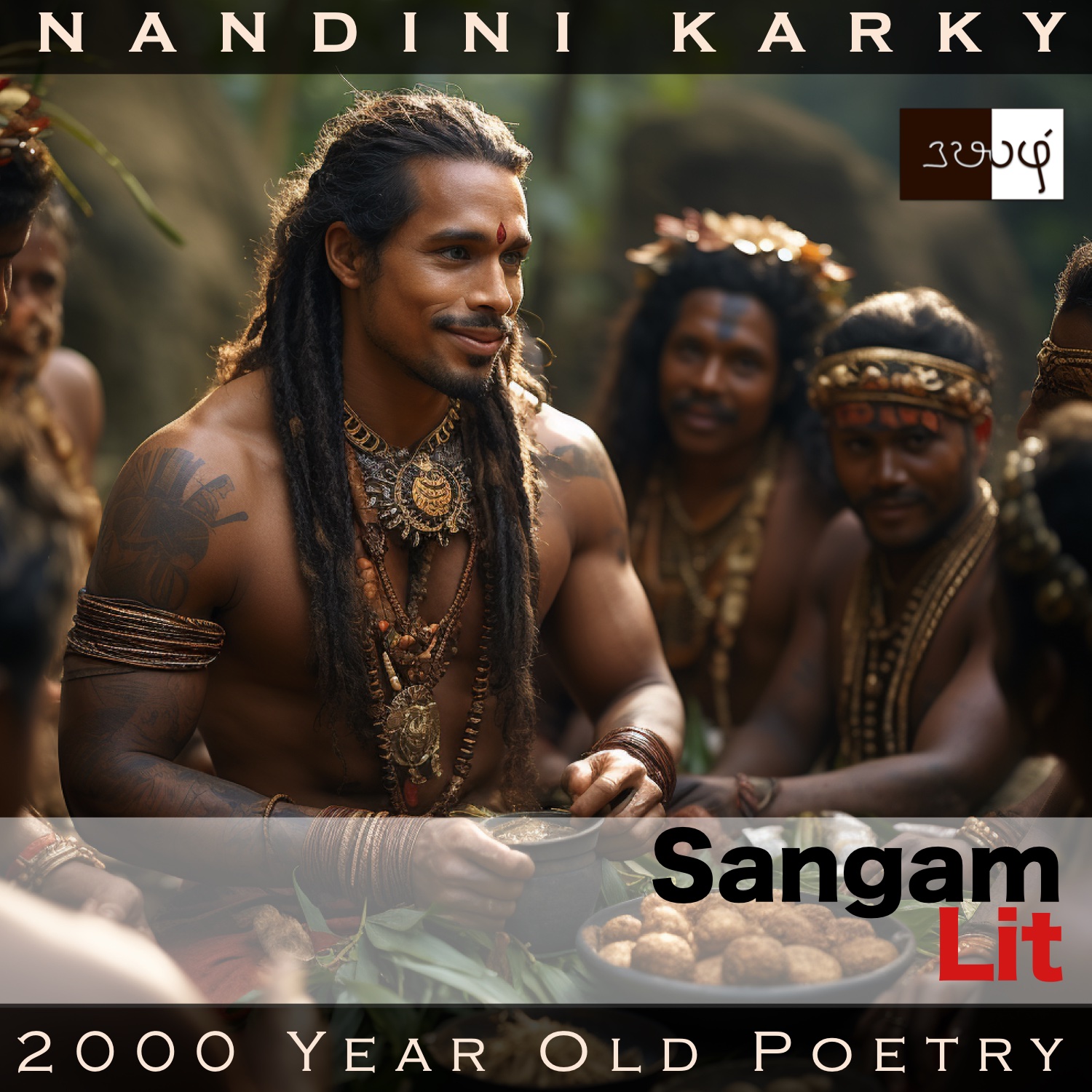Podcast: Play in new window | Download
Subscribe: Apple Podcasts | Spotify | Amazon Music | Android | iHeartRadio | Email | TuneIn | RSS | More
In this episode, we perceive the compassion and courage of a king, as depicted in Sangam Literary work, Puranaanooru 178, penned about the Velir King Pandiyan Keeransaathan by the poet Avoor Moolankizhaar. Set in the category of ‘Vaagai Thinai’ or ‘Victory’, the verse presents two contrasting traits of this king.

கந்து முனிந்து உயிர்க்கும் யானையொடு, பணை முனிந்து
கால் இயல் புரவி ஆலும் ஆங்கண்,
மணல் மலி முற்றம் புக்க சான்றோர்
உண்ணார் ஆயினும், தன்னொடு சூளுற்று,
‘உண்ம்’ என இரக்கும் பெரும் பெயர்ச் சாத்தன்
ஈண்டோ இன் சாயலனே; வேண்டார்
எறி படை மயங்கிய வெருவரு ஞாட்பின்,
கள்ளுடைக் கலத்தர் உள்ளூர்க் கூறிய
நெடுமொழி மறந்த சிறு பேராளர்
அஞ்சி நீங்கும்காலை,
ஏமமாகத் தான் முந்துறுமே.
The poet seems to know quite a few chieftains, who controlled a smaller domain and were themselves under the control of greater kings – Either the Chera, Chozha or Pandya rulers. This particular Velir king was a subject of a Pandya king and hence the epithet ‘Pandiyan’ in his name. The poet’s words can be translated as follows:
“In the sand-filled arena, elephants sigh tiring of their posts, and horses, which move like the wind, sigh tiring of their stables. Here, when learned men arrive but do not partake food, he vows that he will eat only if they do and pleads to them to savour his food. Saathaan with a renowned name has such a pleasant and soft nature to people like me; In the fearsome battle with foes, when those with scant ability, who spoke tall words when drinking toddy in town, forget that now, and in fear, they retreat, he steps ahead as their wall and protection!”
Let’s delve deeper into this verse. The poet brings before our eyes, the courtyard of a king where elephants are tied to posts and horses plenty are to be found in the stables. This place resounds with the sighs of these animals, tiring of their sedentary state. Though not intended by this poet, we can sense an instance of man exerting his power over other creatures of the world and making them bow to his intentions. Returning to the verse, we see poets and philosophers arriving at this place filled with neighing and trumpeting. If these learned people say they don’t want any food, then Saathan, who is the lord of that house, would come down and insist that they eat, declaring that he would eat only if they do. Through this narration, the poet wishes to etch the warmth and hospitality of this king.
From that domestic scene, the poet then shifts the focus to the battlefront. Here, as a war with enemies is raging wildly, a few men forget how they boasted of their strength when they had a cup of toddy in their hands, and now try to run away from that field. At this time, it’s none other than the same Saathan, who rushes to protect them from shame and stands fighting like an impenetrable wall in front of the enemies, the poet concludes.
Two scenes to sketch the nature of this king. It’s interesting how when those learned men do not eat, Saathan says he won’t eat too, but when his companion soldiers retreat, he does not follow suit, but stands tall and strong and keeps the fight going. Switching to our present, we can relate this contrast-filled portrait of a Sangam king to a modern person’s changing shades when at home, relaxed in the company of their friends and family, and when at work, formidable when fulfilling the tasks at hand!




Share your thoughts...